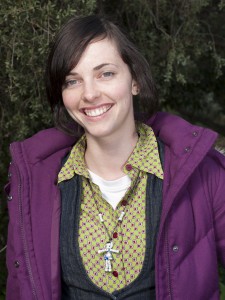 When you ask most people what the life of a university student is like they’re likely to suggest it’s easy or uncomplicated. For some, university is more about parties than pie graphs but for others there is a whole lot more on their plates.
When you ask most people what the life of a university student is like they’re likely to suggest it’s easy or uncomplicated. For some, university is more about parties than pie graphs but for others there is a whole lot more on their plates.
One windy afternoon I set out to find out what life is really like for students at La Trobe University. With surveys in hand, I approached students who were out and about on campus and asked them to tell me about their lives.
I was expecting to find a divide between those who party or shop their way through uni and those who work hard to pay their bills. But surprisingly the most common divide appeared in the number of hours spent in class. From the random survey of 32 students, with an almost even split between humanities and sciences, it became clear that science students have a lot more contact hours.
I thought it might just be science students exaggerating but according to La Trobe University’s website students can expect ‘…between 12 and 30 contact hours per week, students enrolled in science and engineering courses will have more contact hours per week while arts students will have less.’
In the survey, most science students thought that their workload at university was too high but arts students, unsurprisingly, were usually happy with the amount of work expected from them.
In a 1st year core subject for an anthropology major, students are only required to have three contact hours per week, and three assessments throughout the semester. In contrast a core 1st year subject for a major in microbiology, worth the exact same credit points, included six contact hours per week, with half of those being practical and eight separate pieces of assessment.
‘It’s like a full-time job,’ says Lynda, who majors in geology and spends almost 30 hours a week in class.
Jehan a recent Bachelor of Arts graduate didn’t have the same experience.
‘The work load was a bit too light. I had a lot of free time when I was at uni.’ he says.
So that got me wondering: Why is so much more expected from science students than arts students? My first thought was they have to do more so they pay more, but this isn’t the case. In 2009, science – along with mathematics and statistics – became the cheapest areas of study. In the student contribution scheme they were moved from band 1 and 2 into the national priority band. According to the Department of Education, Employment and Workplace Relations, courses in the national priority band are ‘areas for which the Commonwealth offers additional assistance.’
So why are science students getting more bang for their buck compared to their more creative counterparts?
It may be because they are expected to be work ready when they finish their studies.
The 2010 graduate destination study shows that more science students are entering the workforce immediately after graduation. The research was conducted by Graduate Careers Australia, who specialise in graduate research and providing graduates with the information they need to enter the work force.
The study shows that depending on their discipline, the percentage of graduates who enter full time employment shortly after completing study is very different. Medicine graduates had the highest rate of employment at 99% compared to humanities graduates with only 70%. Geology graduates experienced 80.7% employment whereas visual and performing arts graduates had the lowest rate of employment at 58.1%.
Lynda is optimistic about her prospects.
‘The field work in my course will make it easy to move into work, and there are so many jobs out there for geologists at the moment.’ says Lynda.
Jehan, who is currently unemployed, wonders if his HECS debt was worth it.
‘I need more qualifications to be employable, but I’m not even exactly sure where I want to be employed.’ says Jehan
These types of figures have lead to La Trobe University introducing a work ready Bachelor of Arts for 2012. The university says the new degree ‘prepares you for the workforce by offering additional specific career development subjects and work placements.’ This may mean a few more hours on campus for some arts students, but if their lab coat wearing colleagues are anything to go by, it doesn’t mean their social lives will go down the drain.
According to the survey of La Trobe University students, those studying sciences are not stuck in the lab or the library 24/7 despite the heavier work load. Socialising was listed as the main activity outside of university across the board, with work coming in a close second.
Lynda has figured out a way to keep a good balance.
‘I usually socialise with class mates,’ says Lynda
While most outsiders might consider uni life to be a relaxing extended holiday, it’s clearly not like that for everyone. Some students may enjoy long afternoons in the park but many are working just as hard as those already in the workforce.
Jyade Old is studying the Graduate Diploma of Journalism at La Trobe University and is part of upstart‘s editorial team. Follow her on Twitter: @jyadvantage.






